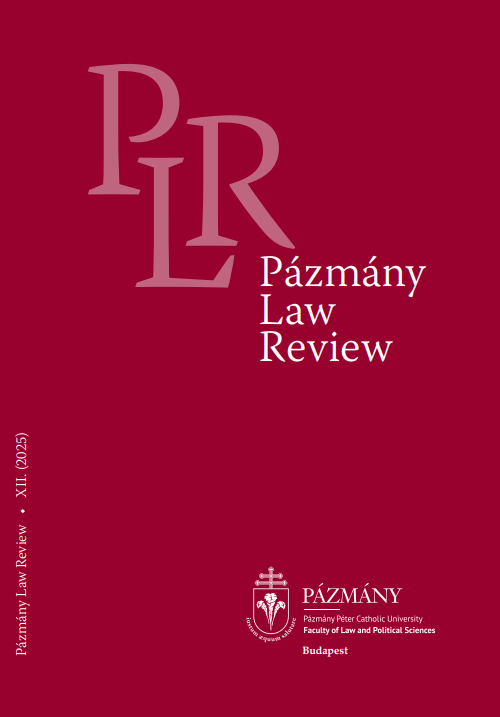The Limits of Press Freedom in the USA
Abstract
Right to information regarding the public is one of the fundamental principles of the American society. The First Amendment to the Bill of Rights of 1791 protects the freedom of the press. Congress shall make no law restricting the freedom either of speech or of the press. Whereas the United States attempts to create a structural framework for the flow of information in accordance with democratic principles, meanwhile the increasing assertion of freedom of expression is historically becoming widespread, a growing number of problems emerge. It is clear from the decisions of the Supreme Court that freedom of expression in the United States is restricted by certain laws and by the courts. Legislators and judges are humans, hence influenced by the public perception, political climate and sentiment surrounding their decisions. Albeit once a model for the free press, the country now ranks the 57th among 180 countries as of the latest press freedom index compiled by the international journalists' organisation (Reporters sans frontières/Reporters Without Borders).
This study attempts to trace the exercise of freedom of expression in the United States by examining changes in the value systems of the legislators and legal practitioners across the eras.
References
Douglas Bradburn: The Citizenship Revolution: Politics and the Creation of the American Union, 1774–1804. Charlottesville, University of Virginia Press, 2009.
Delbert Clark: Aliens to Begin Registring Tuesday. The New York Times, 25 August 1940. 64.
Jesse DeLauder: The Seattle Seven: The Smith Act Trials in Seattle (1952–1958). In: Communism in Washington State – History and Memory Project. University of Washington, 2008. https://depts.washington.edu/labhist/cpproject/SmithAct.shtml.
Joseph Gales (comp.): The Debates and Proceedings in the Congress of the United States. Vol. 1. Washington, Gales and Seaton, 1834. 451.
Robert Griffith: The Politics of Fear: Joseph R. McCarthy and the Senate. Amherst, University of Massachusetts Press, 2007. 101.
Colby Itkowitz: A Challenger Engineer Blamed Himself for 30 Years. The Washington Post, 25 February 2016. https://tinyurl.com/3a9e5ebc
Joe P. Kirby: The Case of the German Socialist Farmers: Joe Kirby Challenges the Espionage Act of 1917. South Dakota History 42, 3. (2012), 239–243.
David Klepper: Secret History: Even Before the Revolution, America Was a Nation of Conspiracy Theorists. Associated Press News 31, 01. (2024). https://tinyurl.com/yv2mprtt
Richard E. Labunski: James Madison and the struggle for the Bill of Rights. Oxford University Press, 2006. 258–259.
Marc Lendler: The Time to Kill a Snake: Gitlow v. New York and the Bad-Tendency Doctrine. Journal of Supreme Court History 36, 1. (2011), 11–29.
Richard A. Parker: Brandenburg v. Ohio. In: Richard A. Parker: Free Speech on Trial: Communication Perspectives on Landmark Supreme Court Decisions. Tuscaloosa, University of Alabama Press, 2003. 145–159.
Michael E. Ruane: „You Are Done”: A Secret Letter to Martin Luther King Jr. Sheds Light on FBI’s Malice. The Washington Post, 03 December 2017. https://tinyurl.com/3kwnvb5e
Carly Sauvageau: Complicated Legacy of Nuclear Testing in Nevada Lives on in Bodies, Politics. The Nevada Independent, 17 September 2023. https://tinyurl.com/evpscfju
Frederick Schauer: A tények és az Első Alkotmánykiegészítés. [Die Fakten und der erste Verfassungszusatz]. In: Frederick Schauer: A demokrácia és a szólásszabadság határai. Válogatott tanulmányok. [Die Grenzen der Demokratie und der Meinungsfreiheit. Ausgewählte Essays]. (ausgewählt von András Koltay). Budapest, CompLex, 2014. 301–325., 320.
James M. Smith: The Enforcement of the Alien Friends Act of 1798. The Mississippi Valley Historical Review 41, 1. (1954), 85–104.
Rachel Treisman: Dylan Lyons, a 24-year-old TV journalist, was killed while reporting on a shooting. KUOW, 23 February 2023. https://tinyurl.com/mrh67typ
Anne Wells Branscomb: Who Owns Information? From Privacy to Public Access. New York, BasicBooks, 1994.
Gordon S. Wood: Empire of Liberty: A History of the Early Republic, 1789–1815. New York, Oxford University Press, 2011.
Rechtssprechung
Brandenburg v. Ohio, 395 US 444 (1969).
Debs v. United States, 249 US 211 (1919).
Dennis (8. lj.) 509.
Dennis 510. / die Quelle des Zitats von Hand: 183 F.2d 201 (2d Cir. 1950), 212/.
Dennis v. United States, 341 US 494 (1951).
Gitlow (20.lj.) 673.
Gitlow v. New York, 268 US 652 (1925).
Leathers v. Medlock, 499 US 439 (1991), 454.
Schenck v. United States, 249 US 47, 51 (1919).
Tinker v. Des Moines Independent Community School District, 393 US 503 (1969), 511.
Yates v. United States, 354 US 298, 327 (1957).
Medienberichte
„Ich bin kein Spion, Sondern Journalist!” Human Rights Watch über Medienkontrolle in den USA. IPG, 04 September 2014. https://tinyurl.com/2zpz573z
Bericht über den Alien Registration Act bei www.spartacus-educational.com
Gitlow Loses Fight in Highest Court to Annul Anarchy Law. The New York Times, 09 June 1925. https://tinyurl.com/46njvxs5





